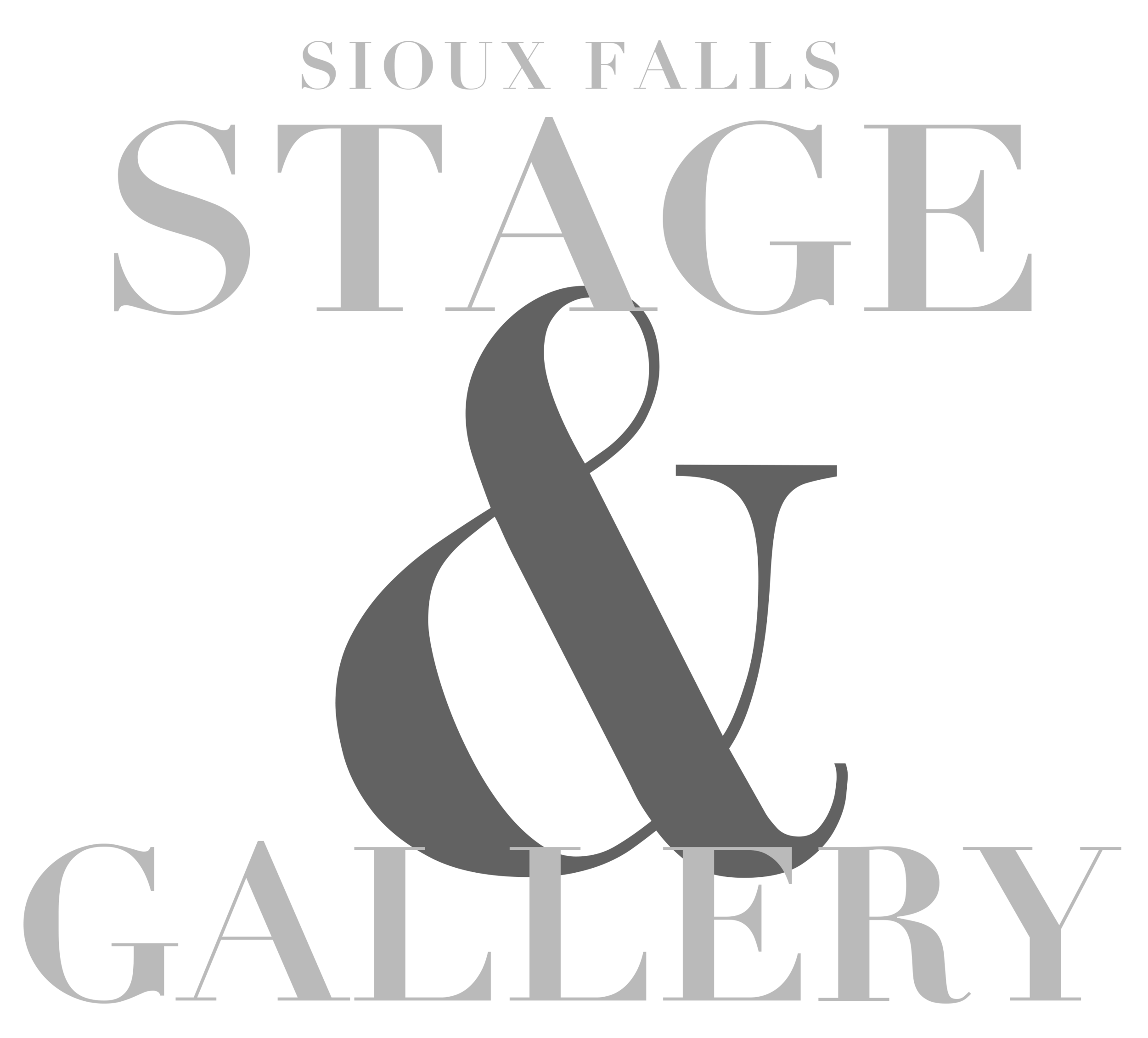Next Generation: Magdalen Eberle
A passion for communication is what brought Augustana University junior Magdalen Eberle to Sioux Falls from her hometown 26 hours away in Connecticut. And it’s that same passion that is helping fuel the artistry and storytelling she hopes to achieve on and off the stage.
Magdalen Eberle
“Theatre is kind of everywhere there,” Eberle said of being a New Englander. “I’ve been super fortunate to be saturated with theatre from a very young age. I started showing interest at four or five, and my parents put me in a couple of community theatre productions. It just really stuck — I really loved it. I grew that passion and searched for it wherever I could.”
That interest was something of a new occurrence for the Eberle family, which the performer describes as “all big sports people.”
“My dad and mom played sports in college, and both my sisters play sports at a pretty high level,” Eberle said. “So I’m kind of a black sheep in that sense. I’m very happy to have opened the door to the wonderful world of theatre, being a dance mom and driving all over the place for that different kind of community.”
And speaking of driving — what was it about Augustana that compelled the young theatre artist to venture to the blistery-cold world of Sioux Falls? It has a little something to do with her other primary pursuit — American Sign Language (ASL) interpreting, of which Augustana happens to have a well-known program.
“I’m double-majoring in theatre and sign language interpreting, and there are not a lot of programs that offer both,” she said. “Through my search, there were only about five that would let me major in theatre and also pursue ASL interpreting. I visited all of them, and none of them compared to Augustana. I was immediately like, ‘Okay, this is a family, a home.’
“I was nervous about being far away, but I just kind of knew that I would find a community at Augie. It felt like the right choice — it was the one. I visited only once — in January, in a snowstorm, in 2020 — it was cold, but it didn’t scare me away. They all said that if I liked it then, I would like it year-round.”
When it comes to the Venn diagram between theatre performance and ASL interpretation, Eberle cites a lot of crossover in the communication styles — namely the importance of expression.
“As an interpreter, you have to have a lot of skills that a performer has,” she said. “You have to be good at standing in front of people, you have to be expressive — it’s very important, because that’s really how you show the language. It’s super visually and facially important — you have to have a lot of facial expression to be able to tell tone and context in the conversation. So much so that the interpreting program requires taking acting.
“There is so much overlap between the two that the best interpreters end up being people who are very comfortable with performance, with public speaking. Even if you’re not acting, you’re still having to render a message in many different ways. I think they’re very connected.”
As for her theatrical pursuits, Eberle has dived in and lent her skills to many a university production in her time on campus, notably being nominated for Sioux Falls Stage Awards for her performances in Guys & Dolls and, most recently, Little Women.
“I am just so unbelievably grateful for that experience and opportunity,” Eberle said of her experience with Little Women in spring 2022. “I felt a lot of responsibility and pressure — good pressure — to do that story justice. It’s not really every day that you get to play somebody like Jo or tell that kind of story. It felt very personal and it felt important — I felt like that story has had a lot of weight and meaning for a lot of people. I look back on it so fondly. I learned so much.”
So what is it that keeps the young actor coming back to the stage as an outlet for expression? It’s the opportunity to empathize with and spur emotion in an audience.
“I definitely think of the importance of catharsis in theatre,” she said. “I think there’s something to be said about making people feel things. I think of myself as an empathetic person, and theatre and empathy kind of go together. You’re on that line between empathy and sympathy and trying to help people believe in the story you’re telling. There’s something really rewarding about making people feel things.”
Next in Eberle’s journey is a hopeful future in sign-language-interpeting in an educational setting. She cites helping to give language access to deaf and hard-of-hearing communities as one of her greatest passions. And theatre will always remain a part of her day-to-day.
“I would also love to audition as much as I can — to gain experience in as many ways as I can, to grow and learn. To just be really active in whatever community I’m a part of.”


